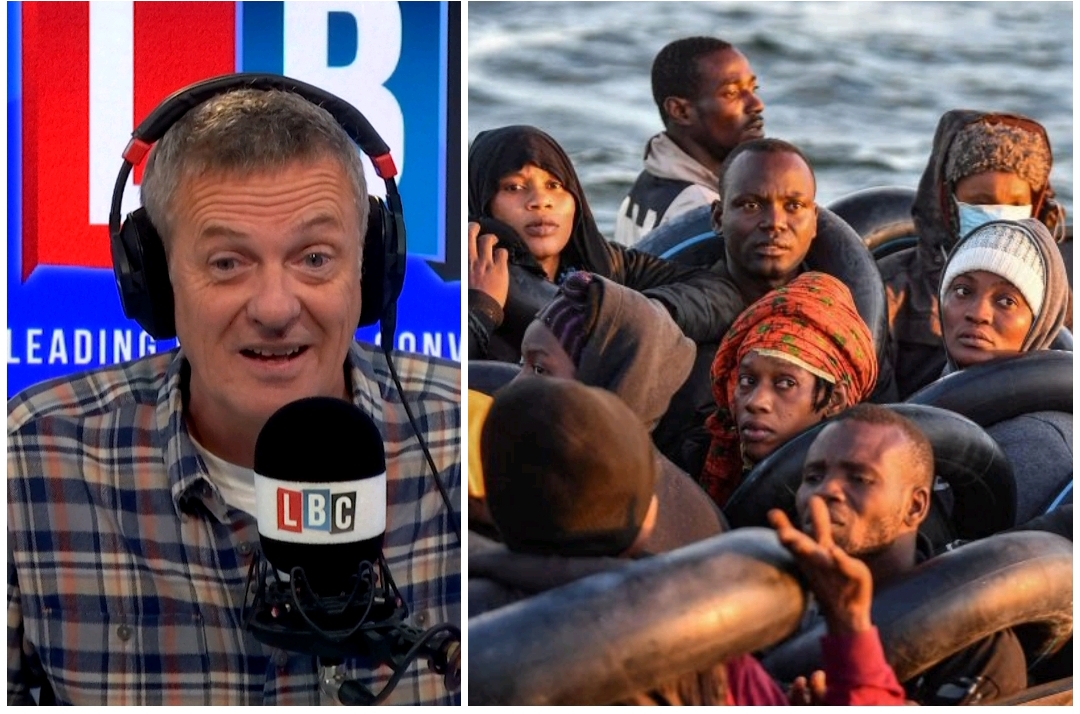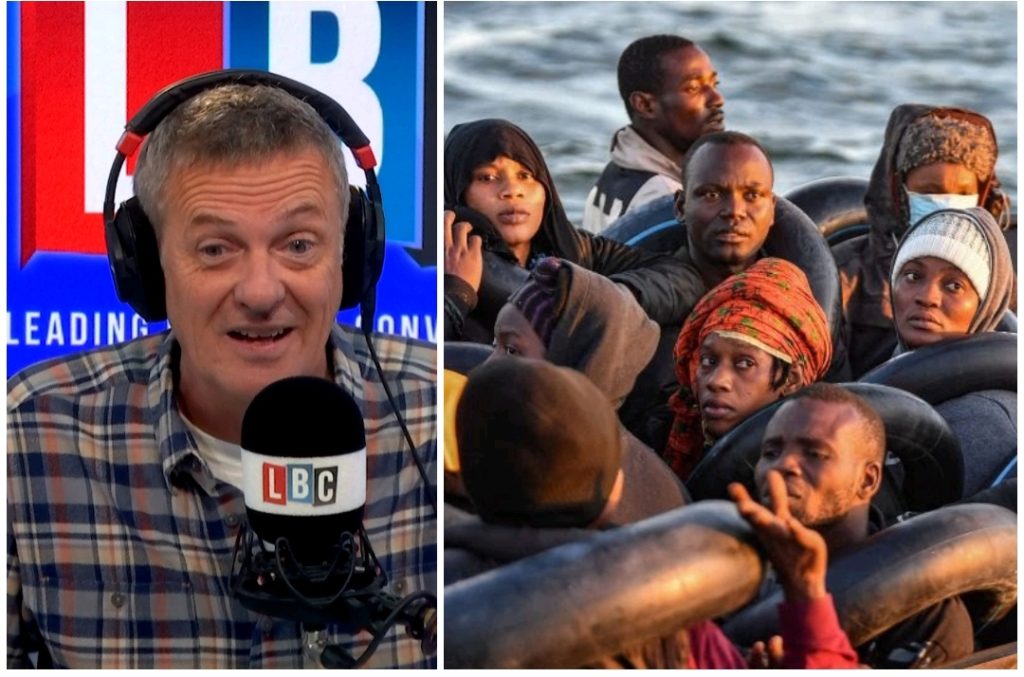Migrants Are Not Coming From Dangerous Areas’ Matthew Wright Challenges Caller on Asylum Seekers

In a recent discussion on Matthew Wright’s show, a caller named Andrew challenged the prevailing narrative on asylum seekers, asserting that they are “not coming from areas which are dangerous.” This assertion prompted an engaging exchange between Andrew and the presenter, highlighting the complexities of public opinion on immigration, as reported by LBC News.

Matthew Wright, quick to respond, contested Andrew’s claim, stating emphatically, “Well, they do, they do.” The caller then specified his concern, asserting that France, in his view, is not a dangerous country. In a characteristic move, Wright challenged this notion, pointing out that the discussion about illegal migrants from France was news to him. He queried, “How many illegal French people have we taken?”
The conversation took a nuanced turn when Andrew clarified that he was referring to asylum seekers, citing Syria and Africa as their places of origin. Seizing this opportunity, Wright raised a crucial point about the UK’s responsibility to those fleeing regions affected by conflict, reminding the caller of Britain’s involvement in bombing Syria. This exchange underscored the broader debate about the ethical obligations of countries participating in conflicts to the displaced populations that result from their actions.
The caller, Andrew, faced with this perspective, asserted, “We are not responsible for what is going on there now.” This response echoes a prevalent sentiment that nations might not bear ongoing responsibility for the consequences of their historical actions, a viewpoint often debated in discussions surrounding asylum and refugee policies.
The backdrop of this conversation is set against the political landscape, with former UK Home Secretary Suella Braverman at the center of the criticism directed at Prime Minister Rishi Sunak’s plans to ‘stop the boats.’ Braverman, who was sacked prior to the Supreme Court ruling on the Rwanda plan, has been vocal in her critique of the government’s approach to handling migration.
Her five-point plan, outlined in her resignation letter, emphasizes addressing the Supreme Court’s concerns regarding Rwanda, enabling swift removal before the next general election, advocating for detention of those arriving illegally, and treating the situation as an emergency. This plan reflects a firm stance on curtailing what she terms ‘illegal migration’ and calls for significant legal and procedural changes.
However, the broader discussion on Matthew Wright’s show highlights the diverse perspectives within the public discourse on immigration. Andrew’s views, while just one voice, reflect a segment of society that questions the characterization of certain regions as inherently dangerous and challenges assumptions about responsibility.
The conversation between Matthew Wright and caller Andrew provides a snapshot of the ongoing dialogue surrounding asylum seekers and immigration policies in the UK. The exchange underscores the importance of acknowledging diverse perspectives in this complex and emotionally charged debate, where notions of danger, responsibility, and government action intertwine.
As the political landscape continues to evolve, these discussions serve as a vital reflection of the ongoing quest for balanced and compassionate immigration policies.




